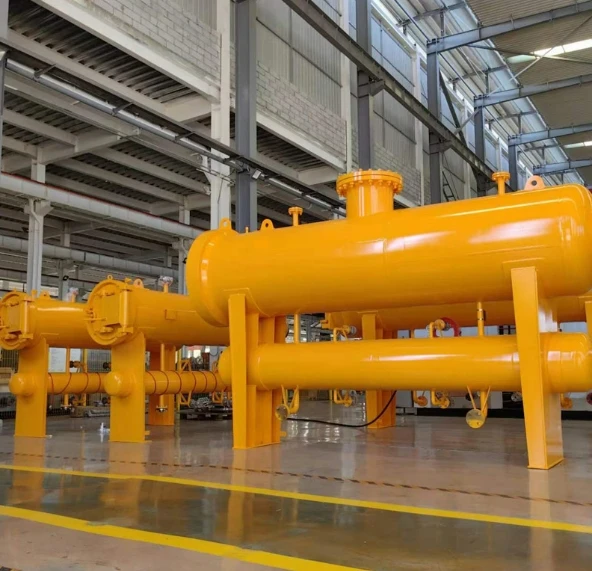
Dec . 20, 2024 08:13
Back to list
filter separator
Understanding Filter Separators A Key Component in Industrial Processes
In various industrial applications, particularly in oil and gas, chemical processing, and water treatment, the need for effective separation of liquids and solids is paramount. One of the pivotal technologies that facilitate this separation is the filter separator. This article delves into the workings, applications, and benefits of filter separators, highlighting their significance in enhancing operational efficiency and product quality.
What is a Filter Separator?
A filter separator is a device designed to separate liquids from gases and solids from liquids. It operates on the principle of filtration combined with separation, employing various mechanisms to ensure that the output is free from unwanted particulates and contaminants. The device typically consists of three main components a filter element, a separator vessel, and a discharge mechanism.
The filter element captures solid particles, while the separator vessel uses gravity or centrifugal force to separate liquids of different densities. The process is essential in industries where the purity of products is critical, as even minor impurities can lead to significant operational issues or product failures.
The Working Principle
The functioning of a filter separator can be broken down into several key steps
1. Intake Fluids enter the separator through an inlet. The mixture of gas, liquid, and solids is directed into the filter separator.
2. Filtration As the fluid passes through the filter element, solid particles are trapped, preventing them from entering the downstream processes. The design of the filter element is crucial, as it must effectively capture a wide range of particulate sizes.
3. Separation The filtered liquid then flows into the separation chamber. Depending on the density of the liquids present (for example, oil and water), the less dense liquid rises to the top while the denser liquid settles at the bottom. In some filter separators, centrifugal forces are employed to enhance the separation process, particularly in high-stakes applications.
Applications of Filter Separators
filter separator

Filter separators have a broad range of applications across different industries
- Oil and Gas In upstream operations, filter separators are crucial in separating produced water from crude oil, ensuring that the final product is of acceptable quality before it proceeds to refining.
- Chemical Processing In the production of various chemicals, maintaining the purity of raw materials is vital. Filter separators are utilized to remove contaminants and ensure the effective operation of downstream processing units.
- Water Treatment Municipal and industrial water treatment facilities employ filter separators to remove solids and sediments from water, ensuring that the water is suitable for consumption or safe to return to the environment.
Benefits of Using Filter Separators
The integration of filter separators into industrial processes offers numerous advantages
1. Improved Product Quality By effectively removing particulates and contaminants, filter separators help enhance the overall quality of the final product, which is crucial for meeting regulatory standards and customer satisfaction.
2. Operational Efficiency The removal of unwanted materials reduces wear and tear on downstream equipment, promoting a more efficient operation and decreasing maintenance costs.
3. Environmental Compliance Industries are increasingly required to comply with stringent environmental regulations. Filter separators assist in achieving these targets by minimizing waste and ensuring that effluents meet legally mandated quality standards.
4. Cost-Effectiveness While there is an initial investment cost, the long-term savings associated with reduced downtime, lower maintenance costs, and improved product quality often justify the expenditure.
Conclusion
Filter separators play an indispensable role in various industrial processes, underscoring their importance in a world where efficiency and product quality are paramount. By understanding the mechanics and benefits of these devices, industries can enhance their operational frameworks, comply with environmental standards, and ultimately achieve greater profitability. As technology continues to advance, the capabilities and efficiencies of filter separators are likely to improve, further solidifying their essential role in industrial applications.
Next:
Latest news
-
Safety Valve Spring-Loaded Design Overpressure ProtectionNewsJul.25,2025
-
Precision Voltage Regulator AC5 Accuracy Grade PerformanceNewsJul.25,2025
-
Natural Gas Pressure Regulating Skid Industrial Pipeline ApplicationsNewsJul.25,2025
-
Natural Gas Filter Stainless Steel Mesh Element DesignNewsJul.25,2025
-
Gas Pressure Regulator Valve Direct-Acting Spring-Loaded DesignNewsJul.25,2025
-
Decompression Equipment Multi-Stage Heat Exchange System DesignNewsJul.25,2025

